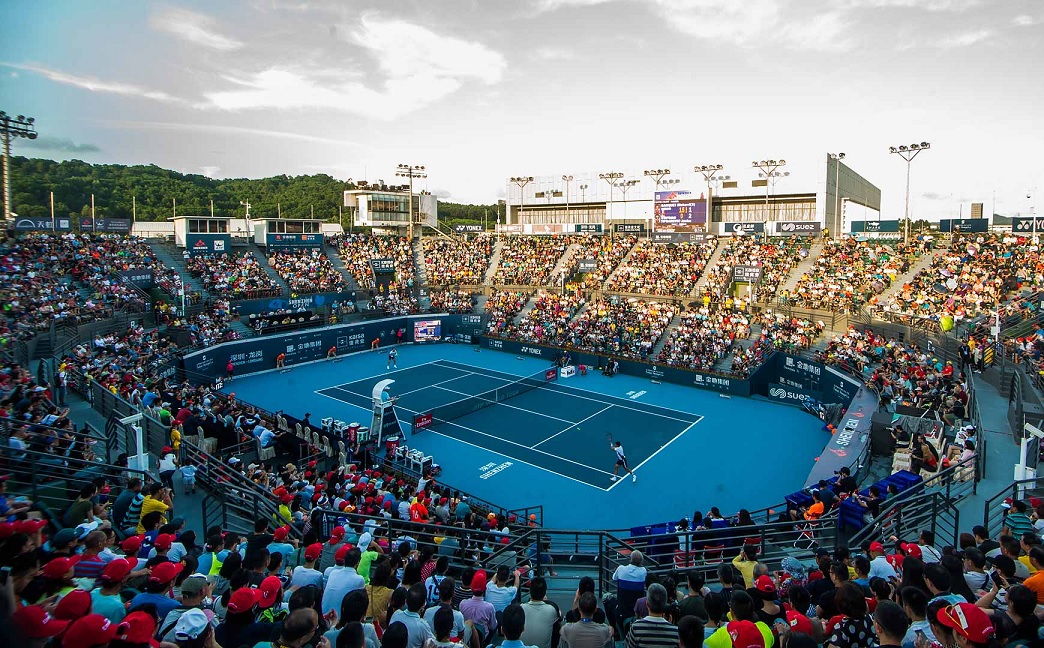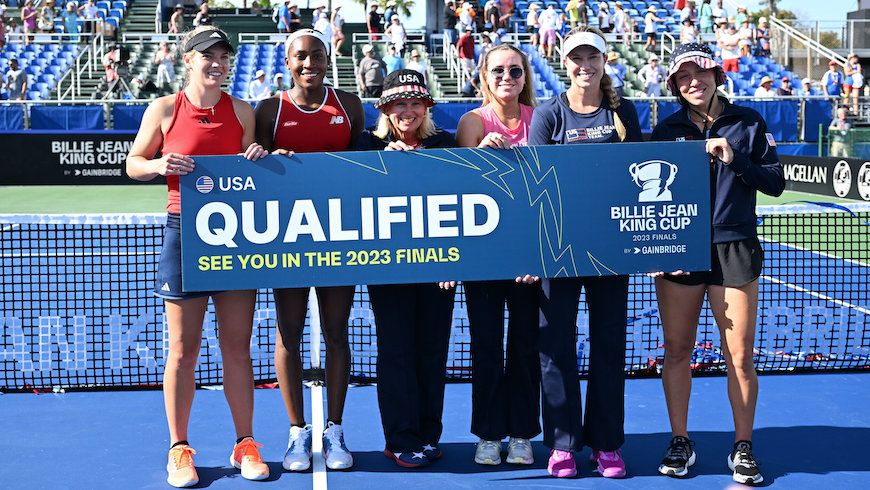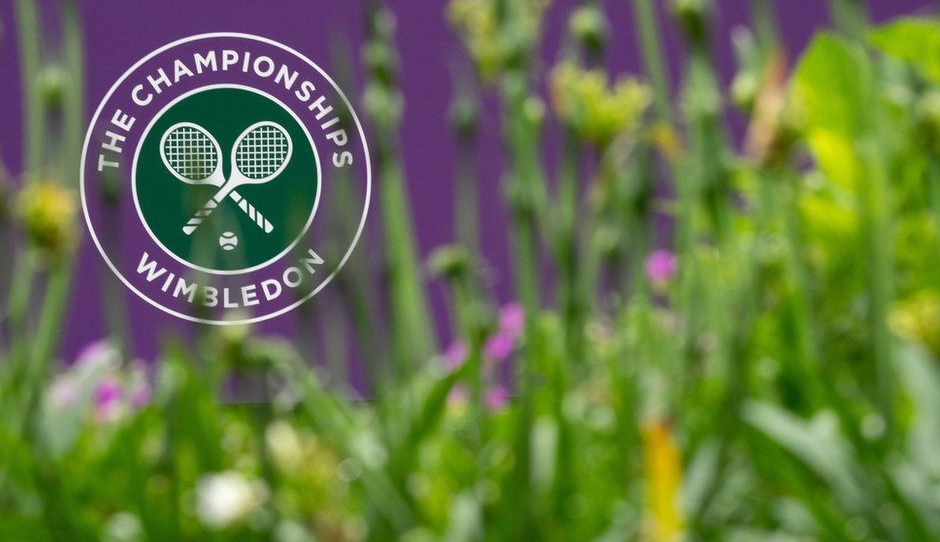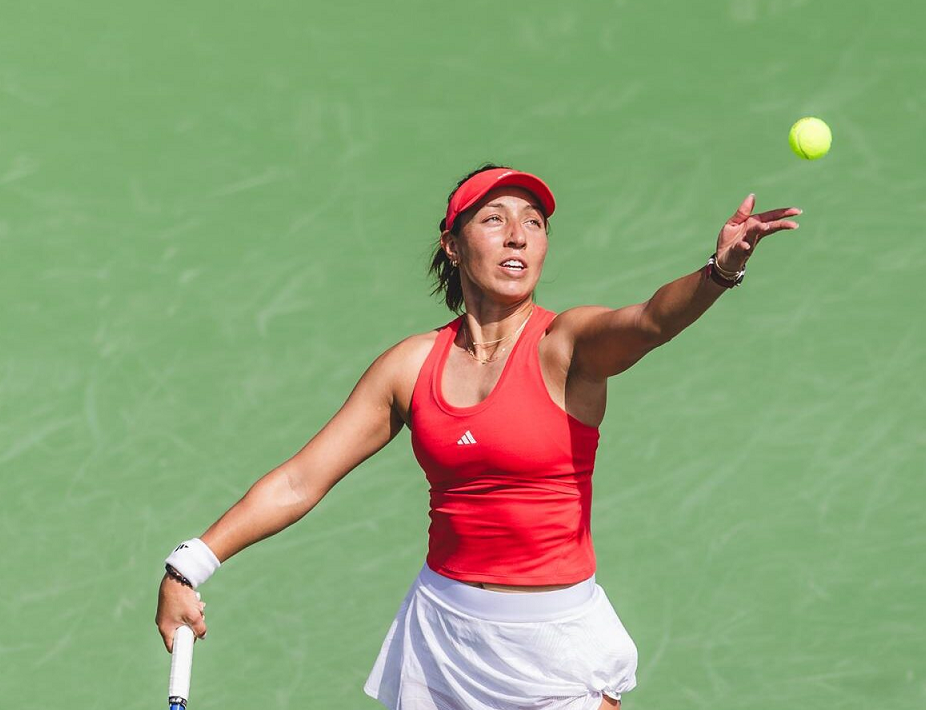The Billie Jean King Cup qualifiers will take place in their traditional mid-April slot but will feature a significantly different format this year. Instead of the usual home-and-away ties, the competition has been restructured into six mini-tournaments, each featuring three teams. The winner of each group will secure a spot in the Billie Jean King Cup Finals. Notably, this change is a one-off for 2025, as the traditional qualifiers format is set to return in 2026. Matches will follow the standard format: two singles rubbers followed by a doubles match.
The six group winners will advance to the Finals in Shenzhen this autumn. The Chinese city has been selected to host the event for the next three years. Tournament organizers continue to experiment with the Finals format to enhance excitement and engagement. While past editions began with a group stage, Málaga 2024 introduced a knockout-style competition. This time, the number of finalists has been reduced from 12 to just 8. The six qualifiers will join China, the host nation, and Italy, the reigning champions, in November.
Here’s a breakdown of the groups action preview, venues, and schedules for the upcoming qualifiers.
Group A: A wide-open battle in Tokyo
April 11-13th - Ariake Colosseum, Tokyo - Hard Indoors
Group A appears to be the weakest and most unpredictable on paper, featuring just one player ranked in the WTA top 100—Japan’s Moyuka Uchijima. She will lead the home team in Tokyo, supported by Aoi Ito and Ena Shibahara, who has climbed into the top 150 this year. Their challenge will be formidable as they face Canada, the reigning 2023 champions, and Romania, who recently competed in the Billie Jean King Cup Finals in Málaga.
Canada will be without their biggest names, relying instead on Rebecca Marino and Marina Stakusic as their most recognizable players. Meanwhile, Romania has made bold squad selections, omitting key players like Jaqueline Cristian, Ana Bogdan, and Elena-Gabriela Ruse. Instead, the 20-year-old Anca Alexia Todoni will lead a team lacking significant experience at the highest level, making them possible underdogs in Tokyo.
Group B: Czechia favored to dominate in Ostrava
April 10-12th - Torax Arena, Ostrava - Hard Indoors
Ostrava will host Group B, where Czechia is expected to secure a spot in Shenzhen. The Czech team has consistently performed well in the Billie Jean King Cup in recent years. Their top player, Linda Nosková, has been in excellent form, particularly shining in last year’s Middle East swing. Marie Bouzková, another top-50 player, adds depth, while promising teenager Sara Bejlek rounds out the squad.
Czechia’s clash with Spain promises to be a thriller, though the Spanish team is without their star player, Paula Badosa, who continues to struggle with a lingering back injury. However, Spain remains well-balanced, featuring four solid all-around players—Jessica Bouzas Maneiro, Sara Sorribes Tormo, Cristina Bucsa, and Nuria Párrizas Díaz.
Brazil will be led by Beatriz Haddad Maia and Laura Pigossi, both of whom have experience in dramatic ties for their country. Haddad Maia, however, has endured a rough start to the season, with just two wins in her last ten matches. Without her in top form, Brazil’s chances of making a deep run look slim.
Group C: USA seeks redemption in Slovakia
April 11-13th - Peugot Arena, Bratislava - Hard Indoors
Group C, hosted by Slovakia, will feature a highly anticipated rematch from last November’s BJKC Finals, where Slovakia shocked the USA in the opening round before making a surprise run to the final. The Americans have an unmatched depth of talent but arrive with a somewhat experimental squad. Jessica Pegula is the only top-10 player on the team, joined by rising star Mccartney Kessler, the struggling with form Danielle Collins, and two doubles specialists - Desirae Krawczyk and Asia Muhammad. The USA will try to come back on winning track after three failed campaigns in a row, where they were packed home after first phase of finals competitions. However, the US team was always successful in qualifiers in previous years, so it's interesting how they will perform with quite an experimental squad considering the names called up from their immense depth of quality.
The hosts will be represented by the group who made a sensational run in Malaga - led by one of the last season's revelations - Rebecca Sramkova, complemented by Viktoria Hruncakova, Tereza Mihalikova and Renata Jamrichova.
Denmark is also in this group, led by world No. 22 and WTA 1000 Dubai runner-up Clara Tauson. Caroline Wozniacki has yet to begin her season, reportedly struggling with form, leaving Tauson with the daunting task of carrying a team with little top-level experience. In such a competitive group, an upset seems unlikely.
Group D: Kazakhstan vs. Australia in Brisbane
April 10-12th - Pat Rafter Arena, Brisbane - Hard Outdoors
Brisbane will host Group D, featuring Australia, Kazakhstan, and Colombia. The Kazakh team is the clear favorite, boasting a strong lineup led by world-class players Elena Rybakina and Yulia Putintseva. Their squad also includes three players with solid doubles experience, making them formidable opponents.
However, Australia has a history of strong performances in Billie Jean King Cup competitions, often delivering results beyond expectations. The squad includes Maya Joint, one of only two teenagers ranked in the WTA top 100, alongside experienced players like Ajla Tomljanović, Kimberly Birrell, and elite doubles specialists Ellen Perez and Storm Hunter. Their match against Kazakhstan promises high-quality tennis and plenty of drama.
Colombia, the third team in the group, will be led by Camila Osorio and Emiliana Arango, who recently made a surprising run to the WTA 500 final in Monterrey.
Group E: Switzerland’s experience vs. Ukraine’s depth vs. Poland's home advantage
April 10-12th, Radomskie Centrum Sportu, Radom - Clay Indoors
Groups E and F will be the only ones played on clay courts. In Group E, host nation Poland will be without their star player, Iga Świątek, leaving Magdalena Fręch and Magda Linette with the challenging task of securing qualification. Their road to the Finals will not be easy, as they face strong opposition.
Switzerland, the 2022 BJKC champions, bring a well-balanced team featuring one of this season’s standout players, Belinda Bencic. While Jil Teichmann, Viktorija Golubic, and Céline Naef do not match Bencic’s level, the Swiss team has a history of success and winning experience.
Ukraine, however, appears to be the most complete team in this group. Elina Svitolina and Marta Kostyuk are top-tier singles players, while the Kichenok twins, Liudmila and Nadiia, are renowned doubles specialists. With no apparent weaknesses, Ukraine poses a serious threat in what is likely one of the most competitive groups.
Group F: Great Britain's tough test in Netherlands
April 10-12th, Sportcampus Zuiderpark, The Hague - Clay Indoors
The Netherlands will host Group F, facing Great Britain and Germany. While Great Britain enters as the seeded team, they may not be the favorites. Their top player, Katie Boulter, has historically struggled on clay, and relying on the inconsistent and injury-prone Emma Raducanu is a risk.
The Dutch team boasts two top-100 players: Arantxa Rus, known for her Challenger success on clay, and Suzan Lamens. Germany, meanwhile, brings a mix of youth and experience, featuring Eva Lys, Laura Siegemund, Tatjana Maria, and Jule Niemeier. This group is highly unpredictable, with qualification likely to be decided between the Netherlands and Germany.








